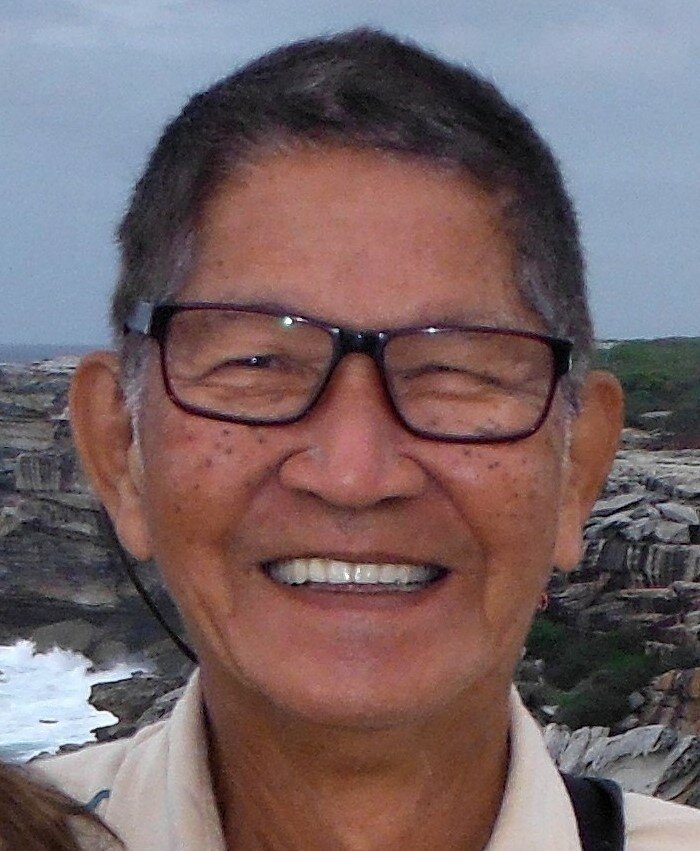MY LATEST TRIP TO PANGASINAN (Part 2)

Scarborough-Canada
August 11, 2019
 William preparing his Lei of Ilang Ilang
William preparing his Lei of Ilang Ilang
AS we exited the church we were met by all kinds of people trying to make a living. To them, Sunday gives them this glorious opportunity.
One of those that attracted my attention was a gentleman peddling the Lei of Ilang-Ilang.
“What’s that?” I asked.
“Ilang-Ilang, Sir, mixed with other fragrant flowers,” he answered.
“Like what?”
He took one of them from the bundle he was holding, “This one Sir, is mixed with sampagita.” He took another one and said, “This one Sir is mixed with rosal.” He took the last one from a group of three, “This one Sir is mixed with camia.”
“How much for that group of three?”
“Only ten pesos, Sir.”
“That’s it?”
“How many do you want, Sir?”
“I cannot buy some right now as we had just arrived. But I will buy some, I promise, before we leave.”
I looked at him and I saw some disappointment on his face. I understood the situation. I took a P50.00 bill and gave it to him. “Take this and thank you for your explanation. Regards to your family.”
“Thank you and God bless you, Sir.”
I glanced at him and I saw the happiness on his face. With that little grace, the equivalent of $1.00 US, I made a person very happy, and perhaps forever grateful. “By the way, what’s your name?”
“William, Sir”
“Nice meeting you, William.”
“Thank you, Sir.”
(Note: A short story about William, whom I found out sometimes sleep at my wife’s ancestral home and prepare his Lei of Ilang-Ilang there, will be told after this article).
As we exited the property of the church, I noticed that along the sidewalk of the national road, the town market seemed to have expanded. No Maria, it was not a supermarket, but a market the old fashion way where the fisherman can bring and sell their catch, small farmers can also sell their harvest, locally made potteries can be sold, and handicrafts made from bamboo (because in Pangasinan, bamboo is bountiful) can also be purchased.
 Potteries being sold during market day
Potteries being sold during market day
“How come it’s so busy today?” I asked my wife.
“Today is Sunday and in Bani, Sunday is market day,” she answered.
“Now I know,” I replied.
We went directly to my wife’s ancestral home and stayed outdoor. While we were chatting and drinking coffee, a lady vendor, carrying a basketful of fresh fruits and vegetables on her head showed up.
 Fresh vegetables being sold during market day
Fresh vegetables being sold during market day
“What’s that?” my brother in law Tony O, asked.
The lady placed the basket on top of an empty table and spread its content, already bundled by weight (kilos).
“What’s that?” my brother in law asked while pointing at one bundle.
“Malunggay leaves, Sir,” she replied.
“And that one?” he again asked while pointing at another bundle.
“Bamboo shoots, Sir”
“That one?”
“Chico fruits, Sir.”
“That one?”
“Atis, Sir”
“Ah atis, that’s my wife’s favorite.”
“That one?”
“Guyabano, Sir.”
“Ah guyabano, the one that prevents cancer.”
“That what they say, Sir.”
Questions and answers of that type were asked a few more times before the final question was asked by my brother in law, “How much for all those?”
“The lady counted the selected items. “Seven hundred and fifty pesos, Sir.”
“What else do you have at home?”
“Pineapple, Sir.”
“How much?”
“One hundred fifty pesos, Sir.”
“I’ll buy all those, but you have to come back here and cook the bamboo shoots and the malunggay leaves and bring the pineapple already peeled.”
“Yes, Sir.”
My brother in law asked for a P1,000.00 bill from his wife, Lita O, the designated treasurer of our shared expense money, and gave it to the lady, “Here, take this, and keep the change.”
“Thank you very much, Sir.”
I glanced at her and I saw the smile on her face - the smile of happiness.
What followed was a wonderful lunch of fresh vegetables bought a few hours earlier; and fresh fish – always fresh fish - bought before dawn at the local market.
After lunch, I rested for a little while. After perhaps half an hour rest, I decided to roam around the area not too far from my wife’s ancestral home. With my favorite little old fashion camera, I took some pictures of the commerce being peddled on the sidewalk on both sides of the road: fresh vegetables, perhaps harvested only a day earlier by small farmers on their small yard; the baskets and other handicrafts made from bamboo strips and rattan; the stoves and pots made from red clay, which I am very familiar with because one time when poor families had no choice but to use wood and charcoal for cooking, we used the same; the food vendor, who, with their mobile cart will peddle some native and homemade food and drinks. There are many more…
Looking around, I noticed that Bani and their leaders is no different than many other towns and cities in the world, in terms of the environment that is: as around the town proper, color coded and marked garbage bins are all over. They are classified as biogradeable, non biogradeable, and recyclable. If it’s implemented, or if the people are following them, I have no idea, as my stay is too short to investigate. So, you see Maria, if there is a failure of this policy, or any other project, the blame is not always on the government, but also on the citizen. It takes two to tango, and for any undertaking to succeed it needs to commitment on both sides.
--------------------------
TO BE CONTINUED
